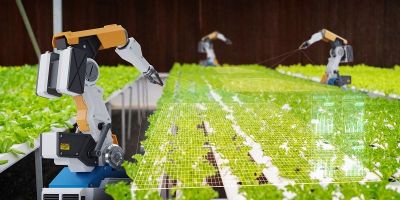Researchers from Leeds shortlisted for Newton Prize 2020

Dr Gehan Selim from the School of Civil Engineering is part of an international collaboration of researchers shortlisted for the Newton Prize 2020.
The project titled ‘Our Past, Our Future, All Together in Faynan’ has been shortlisted for the Newton Prize 2020 (Jordan Category) among three other projects. The project is funded by the Newton Khalidi Fund and The Arts and Humanities Research Council (AHRC), as part of the Global Challenges Research Fund (GCRF).
Dr Gehan Selim from the School of Civil Engineering (Co-PI) is part of an international collaboration between multidisciplinary teams from the University of Reading (PI) and involves researchers from the Council of British Research in the Levant, The Department of Antiquities of Jordan, Queen Mary College in the UK and the Universities of Jordan and Petra in Jordan.
The objective of the project is to build community engagement with the Faynan Museum and facilities for eco-tourism to support social cohesiveness, individual well-being and sustainable economic development in Faynan.
Dr Gehan Selim says: “We are delighted to receive this recognition by The Newton Prize Committee for our research work and its impact in the future on Jordan’s heritage. My Work Package engages with enabling the Faynan museum to become a community hub using bottom-up participatory approaches and co-production methodologies”.
We are delighted to receive this recognition by The Newton Prize Committee for our research work and its impact in the future on Jordan’s heritage. My Work Package engages with enabling the Faynan museum to become a community hub using bottom-up participatory approaches and co-production methodologies.
She adds that: “Faynan is an economically deprived area. It has a remarkable archaeological landscape that has been discovered and explored by research teams from the UK, US and Germany over the last forty years. However, this cultural heritage has not been sufficiently used to support eco-tourism into Faynan which is a major source of income for sustainable economic growth. Neither has the cultural heritage been made accessible to the local community and used to support social cohesiveness, education and well-being”.
The Newton Prize launched in 2016, and celebrates outstanding international research partnerships that play an important role in addressing challenges in developing countries and around the world, such as the problem of producing clean energy, HIV prevention, the protection of historical sites, how to tackle water pollution, as well as the current COVID-19 pandemic.
The shortlist for this year's prize features 27 research and innovation projects between the UK and Egypt, Jordan, Kenya, South Africa, and Turkey. Each year the prize enables international research partnerships supported by the Newton Fund to continue working together on solutions to some of these key global challenges. Research and innovation is recognised as an effective way to help achieve the Sustainable Development Goals and improve the quality of life for people in developing countries as well as the UK.




